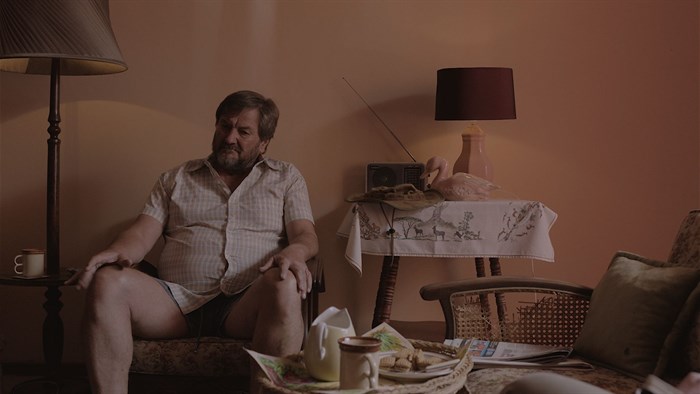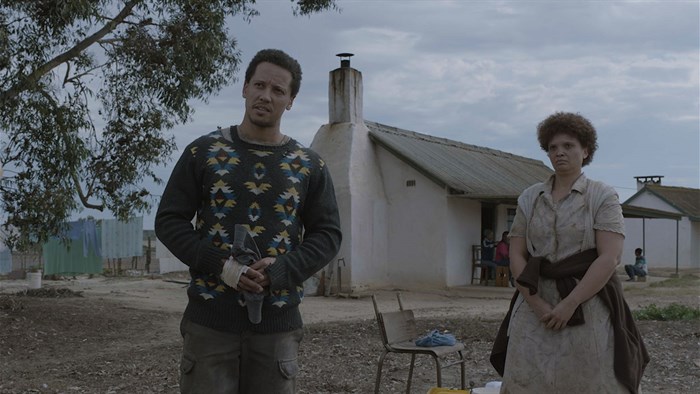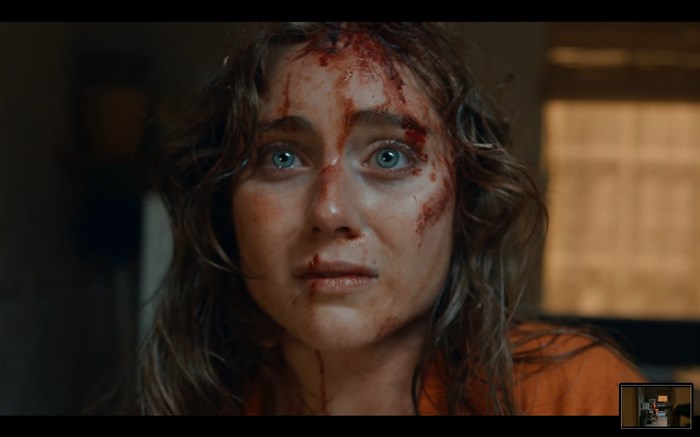
Top stories






LifestyleWhen to stop Googling and call the vet: Expert advice on pet allergies from dotsure.co.za
dotsure.co.za 16 Feb 2026
More news


Marketing & Media
Ads are coming to AI. Does that really have to be such a bad thing?













The happenings around the Griekwastad-murders kept the whole nation glued to every single piece of news and every new fact that was made public. The film predominantly focuses on the happenings around the murders, as well as the investigation after the murders.

Based on the book The Griekwastad Murders: The Crime that Shook South Africa by Jacques Steenkamp, Griekwastad is directed by Jozua Malherbe, with world-renowned South African actor Arnold Vosloo delivering a strong performance as the investigator, with Alex van Dyk (The Harvesters/Die Stropers) equally riveting as the son who is the only survivor in brutal farm murder.
This not-to-be-missed local film will be available exclusively on Box Office from 5 May 2020.
Tertius Kapp also crafted the screenplay for Dis Ek, Anna, and received the South African Film and Television Award for his adaptation in 2016. In 2015, he was awarded the highest prize for literary achievement in the Afrikaans language, the Hertzog Prize, for his published dramas.
I did what I always do: read everything I can lay my hands on related to the story. You reach a point where you realise your research has become procrastination and it’s time to get something on paper. What always makes a huge difference is getting out of the books and into real life. Along with Jacques Steenkamp, whose book was the basis for the film, I travelled to Griekwastad and met many of the people involved, which gave texture to all the things I’d read. We also requested a meeting with Don in prison but never received any reaction. I spoke to various psychologists and people who knew Marthella and the family.
A huge breakthrough was spending a weekend with the investigating officer, Dick de Waal, in Kimberley. That’s when I realised that this is the main character (who would go on to be portrayed by Arnold Vosloo). He was such an unassuming, intelligent detective, who went against all the cliches created by noir films and the like. For a man who experiences and processes so much violence in a country like South Africa, he seems to take none of it home with him.
In the end, I basically found the logline in his choice of words at the bail hearing (paraphrased):
“In my ondersoek moes ek na die feite kyk en alles uitskakel wat nie sin gemaak het nie. Ek het deur ‘n sielewroeging gegaan, ek kon dit nie oor my hart kry om te glo dat ‘n vyftienjarige seun tot die moorde van sulke geliefde mense in staat was nie. Ek het alle teorieë oorweeg. Daar was uiteindelik net een verklaring.”
(“In my investigation I had to look at the facts and discard everything that did not make sense. I went through torment of the soul, I could not fathom that a 15-year old boy was capable of murdering such loved people. I considered all the theories. In the end, there was only one explanation.”)
English is great for many things, but despite its enormous vocabulary, “torment of the soul” does not capture the connotations of a word like sielewroeging.
For starters, it touches on so many topical issues in South Africa today: racism, violence against women, farm murders. But I think its true power lies in the way it resonates with themes of repression and the subconscious. The Oedipal is all over this, for example. Part of the challenge of writing the script was to connect that sort of content (which a film audience typically appreciates only when utilised indirectly) with a gripping, cop thriller sort of storyline. The power of deeper content is that it usually refers outward to the trending issues in interesting ways, maybe like the guide sketches you erase when you finish the final work.

Yes. Not so much for the reasons above – that is what I love to do. But somewhere in the middle, as often happens, the project lost steam and I ended up (once more) writing into a void, hoping that the film would still one day happen. That is perhaps the most difficult thing.
He only came on board much later. Of course, I always work with the director around execution and to make the film doable on our local budgets. We also had some fruitful exchanges about added scenes, and the readthroughs always help to see how dialogue sits in a character’s voice.
I think we are satiated with gore and sentiment. On many of our popular media platforms, we’re click-baiting from a story about a TV presenter’s problem with her self-image to one about a grandmother being hacked to death. We struggle to process this dissonance if we think of both people as real people of flesh and blood. Empathy must be one of the most crucial tools in a writer’s toolbox – spending the time with a character, one you love or hate until you get a glimpse of what it must be like to be them. I try to do this with all my characters, especially when it’s based on true events.

In many ways, but perhaps let’s talk about one.
Obviously, a story such as this presents issues that relate to your own experience. I discovered a fact in the research process that shocked me. Apparently, globally, the second-highest rate of family murders per capita is in South Africa, among the Afrikaner population (white America is number one by quite a margin), which would include me. There’s some interesting writing on this, such as The End of Whiteness: Satanism and Family Murder in South Africa by Nicky Falkof.
No thinking Afrikaner has ever denied the violence inherent to their population group. There is such a thing as transgenerational transmission of trauma, which operates on victims and perpetrators alike. So the way this affected me, personally, was actually to develop a strange pity for Don, the clueless heir of a bloody legacy. Without making any sort of apology for him, it seems to me like he did not have the emotional capacity to deal with the problems he faced. And why would he? They were intense problems, and he was 15 years old.
The only answer that did come to hand was violence. Guns were available. Guns were how you solve problems.

Yes, definitely. But there is a difference in doing adaptations of true events, especially when there has been due legal process. I think people like Dick de Waal, or judge Frans Kgomo, felt a much heavier burden than I did. The courts had found Don guilty, and that was the truth I used in narrating the story. I can only imagine how it must feel to be responsible for presenting that truth to the world.
There are other theories I explored that actually carried a heavier weight. But I would not want to talk about those.
I am one of those people who always feel very uncomfortable seeing my work on the screen for the first time. Somehow it gets easier with second and third viewings.
I think we will overcome the coronavirus pandemic and see a global celebration afterwards. Hopefully, it will have had some lasting effect on our psyches and, hopefully, that effect is one of greater consciousness and awareness of our fragility and dependence on each other. It is already exposing fools and weaknesses in the systems we assumed were unchangeable. The challenge is to interpret this new world and speak to an audience from a productive point of view.
Chills and tears.
Gaia is a film we are currently shooting in the Tsitsikamma area. It’s about an infection that takes over the world, but it seems like Covid-19 is a bit jealous. We had to halt production when the lockdown was announced but, hopefully, we’ll pick up filming as soon as lockdown lifts.
I am always developing, pitching, trying to get the next thing while the current one is ongoing. I hope to do more TV series, hopefully, ones where I can write explosions and car chases. I hope to keep working with the people I admire and respect and one day look back fondly on the stuff we are making now.
Gaia is directed with Jaco Bouwer, the third teaming with Kapp – Bouwer directed Kapp’s gritty prison drama Rooiland (three Fiësta awards – 2012, five Fleur du Cap awards – 2014) and Liewer.
Visit Tertius Kapp’s website
Read more about South African films and filmmaking: here.
